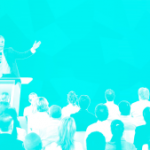The Short, Online Course In Gratitude That Can Make You A Better Boss
Every weekday, Cory Ludens starts his morning by writing out three “gratitudes”—each specific, and never repeated. Over the last four years, he has named roughly 400. “It’s just a part of my life,” says Ludens, vice president of culture and events at Mattress Firm, a Texas-based retailer. “It helps me to create a mind-set that I’m going to approach whatever challenges I’m faced with that day in a positive way.”
Taking a few minutes to be intentional about gratitude may sound like a minor change in routine, but research suggests that “happiness habits” like the one that Ludens has adopted can have a positive impact on not just life satisfaction but also workplace engagement and productivity.
Employers like Accenture, eager to take advantage of that potential upside to such mindful practices as Luden’s gratitude exercise, have started sponsoring online courses like Arianna Huffington’s Thrive, developed by the Oprah Winfrey Network. More broadly, 60% of job seekers care most about whether the staff at a prospective employer feel appreciated versus 5% who care most about getting promoted fast, according to a recent survey from cloud consultancy Appirio. Happiness and vocation, it would seem, are intertwined.
Now, a new online learning program aims to turn those individual practices into management strategy. The Employee Engagement Bootcamp, developed by the Stephen M. Ross School of Business at the University of Michigan in collaboration with digital training provider CorpU, helps managers foster a “mindful” work environment. Over the course of three months, managers earn a certificate by completing modules on happiness at work, positive leadership, and talent management. Mattress Firm has been a CorpU customer for years, and many of its employees have completed versions of courses that evolved into this new bootcamp.
Step One: Know Thyself
“How do I call on my best self?” asks Melanie Barnett, chief executive education officer at Ross. “This isn’t a strength-finder exercise necessarily,” she explains, “it’s more about the complex and integrated picture of you when you’re doing well.” Barnett says it’s different for everyone and every situation. “It’s an art as much as a science,” she adds.
From there, the bootcamp layers in exercises and personal reflections based on research conducted by Harvard professor Shawn Achor, an expert on happiness at work, as well as Michigan professors Kim Cameron and Dave Ulrich, experts on positive leadership and finding purpose. By resetting your “awareness of events and potentialities within an environment,” to use Achor’s definition of mindfulness, you can “rewire” your brain.
Aside from the “three gratitudes” exercise, the bootcamp suggests that managers try a variety of mindfulness practices. For example, they can try meditating at their desk, journaling about a meaningful experience, or sending words of encouragement to friends or family.
“This is where you make it real,” says Alan Todd, CorpU CEO. “What does this mean to me, and what am I going to do differently at work tomorrow?”
Step Two: Exercising Engagement
Over time, researchers say, managers who exhibit behaviors associated with greater mindfulness are more likely to find ways to engage with their employees. And when employees are engaged, they are more productive and less likely to quit.
Of course, engagement can prompt difficult conversations. Encouraging employees to feel a greater sense of purpose may lead to questions about a company’s core values or how it operates. “This is for companies that are comfortable with the discomfort that comes from honest, open dialogue,” Todd says. “If the company culture is closed or afraid, you’re not going to get much out of this.”
But Todd also argues that in our current era, where “software is eating the world,” companies that want to succeed have no choice but to make themselves uncomfortable. “We’re trying to help organizations go faster,” Todd says. “Honest, open conversation is crucial because we don’t have time to do it the old way.”
As for Ludens, he says that the idea of happiness as a competitive advantage is now embedded in how Mattress Firm operates. “We start all of our meetings with verbal affirmations before we jump into the agenda,” he says. In addition, Ludens tries to send one note of thanks to a team member every day. “We believe that if we can give people a purpose and a reason to love what they do, then they’ll stay happy, engaged, motivated, and be productive at work.”
The collective outcome of all that gratitude: an overall culture of collaboration and support, which has become essential as the company has grown through mergers and acquisitions. Plus, Ludens says, employees are more eager to learn in general, no matter how dry the topic.
If mindfulness and gratitude can make accounting exciting, the sky’s the limit.
Fast Company , Read Full Story
(37)













